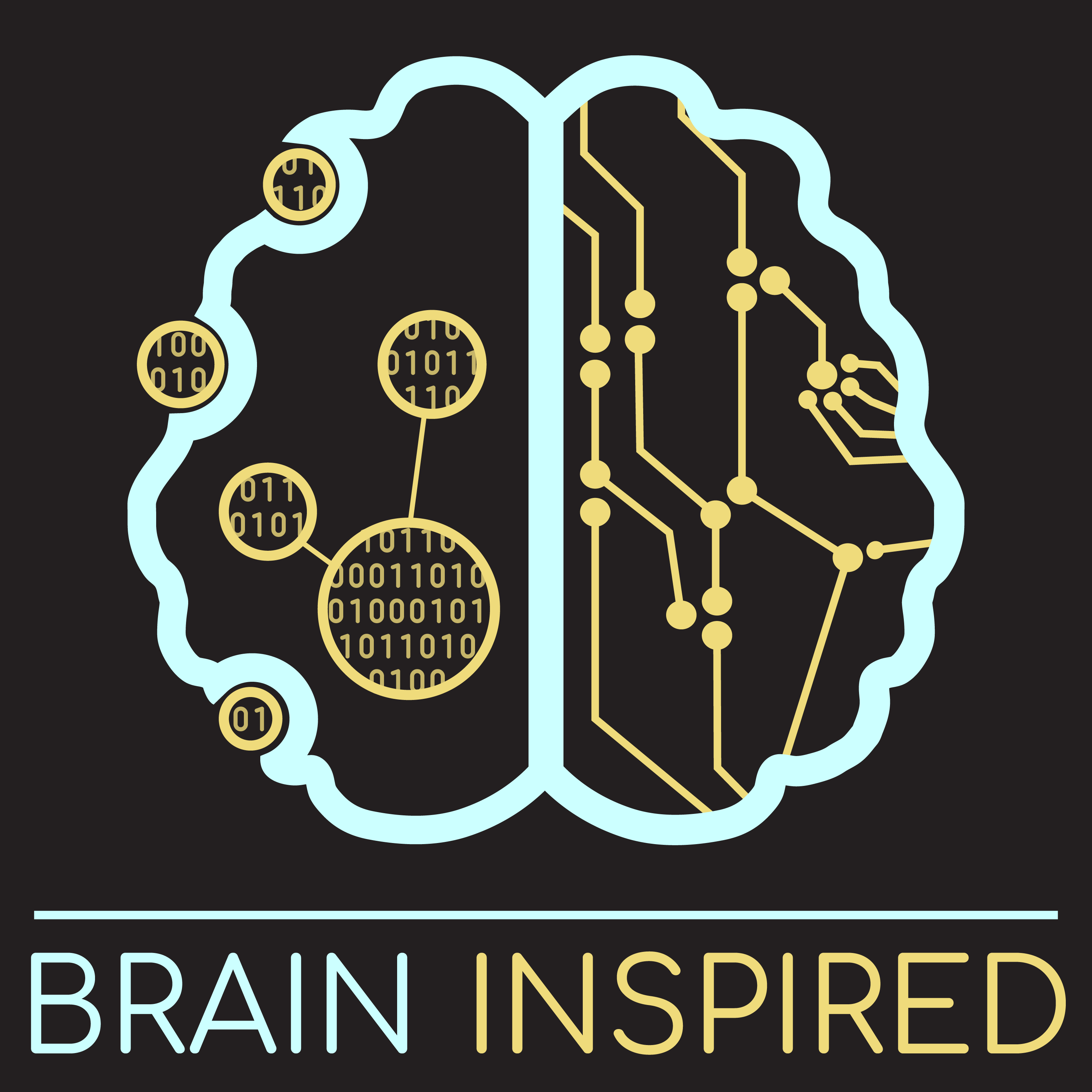 |
Brain InspiredWhere Neuroscience and AI Converge Author: Paul Middlebrooks
Neuroscience and artificial intelligence work better together. Brain inspired is a celebration and exploration of the ideas driving our progress to understand intelligence. I interview experts about their work at the interface of neuroscience, artificial intelligence, cognitive science, philosophy, psychology, and more: the symbiosis of these overlapping fields, how they inform each other, where they differ, what the past brought us, and what the future brings. Topics include computational neuroscience, supervised machine learning, unsupervised learning, reinforcement learning, deep learning, convolutional and recurrent neural networks, decision-making science, AI agents, backpropagation, credit assignment, neuroengineering, neuromorphics, emergence, philosophy of mind, consciousness, general AI, spiking neural networks, data science, and a lot more. The podcast is not produced for a general audience. Instead, it aims to educate, challenge, inspire, and hopefully entertain those interested in learning more about neuroscience and AI. Language: en-us Genres: Natural Sciences, Science, Technology Contact email: Get it Feed URL: Get it iTunes ID: Get it |
Listen Now...
BI 232 How Should Neuroscience Integrate with Ecological Psychology?
Tuesday, 24 February, 2026
Support the show to get full episodes, full archive, and join the Discord community. The Transmitter is an online publication that aims to deliver useful information, insights and tools to build bridges across neuroscience and advance research. Visit thetransmitter.org to explore the latest neuroscience news and perspectives, written by journalists and scientists. Read more about our partnership. Sign up for Brain Inspired email alerts to be notified every time a new Brain Inspired episode is released. To explore more neuroscience news and perspectives, visit thetransmitter.org. How does brain activity explain your perceptions and your actions? That's what neuroscientists ask. How does the interaction between brain, body, and environment explain your perceptions and actions? That's what ecological psychologists ask… sometimes leaving the brain out of the equation altogether. These different approaches to perception and action come with different terms, concepts, underlying assumptions, and targets of explanations. So what happens when neuroscientists are inspired by ecological psychology but don't necessarily want take on, or are ignorant of, the fundamental principles underlying ecological psychology? This happens all the time, like how AI was "inspired" by the most rudimentary understanding of how brains work, and took terms from neuroscience like neuron, neural network, and so on, as stand-ins for their models. This has in some sense re-defined what people mean by neuron, and neural network, and how they function and how we should think of them. Modern neuroscience, with better data collecting tools, has taken a turn toward more naturalistic experimental paradigms to study how brains operate in more ecologically valid situations than what has mostly been used in the history of neuroscience - highly controlled tasks and experimental setups that arguably have very little to do with how organisms evolved to interact with the world to do cognitive things. One problem with this turn is that we neuroscientists don't have ready-made theoretical tools to deal with the less constrained massive amounts of data the new approach affords. This has led some neuroscientists to seek those theoretical concepts elsewhere. One of those places that offers those theoretical tools is ecological psychology, developed by James and Eleanor Gibson in the mid-20th century, and continued since then by many adherents of the concepts introduced by ecological psychology. Those concepts are very specific with regard to how and what to explain regarding perception and action. Matthieu de Wit is an associate professor at Muhlenberg College in Pennsylvania, who runst the ECON Lab, as in Ecological Neuroscience. Luis Favela is an associate professor at Indiana University. He's been on before to talk about his book The Ecological Brain. And Vicente Raja is a research fellow at University of Murcia in Spain, and he's been on before to talk about ecological psychology and neuroscience. With their deep expertise in ecological psychology, they are keenly interested in how neuroscience write large adopts various facets of ecological psychology. Do neuroscientists have it right? Do they need to have it right? Is there something being lost in translation? How should neuroscientists adopt ecological psychology for an ecological neuroscience? That's what we're discussing today. More broadly, this is also a story about what it's like doing research that isn't part of the current mainstream approach, in this doing ecological psychology under the long shadow cast by the computational mechanistic neuro-centric dominant paradigm in neuroscience currently. Matthieu de Wit lab. @dewitmm.bsky.social Luis Favela. The Ecological Brain: Unifying the Sciences of Brain, Body, and Environment Vicente Raja @diovicen.bsky.social MINT Lab. Ecological psychology Previous episodes:BI 223 Vicente Raja: Ecological Psychology Motifs in NeuroscienceBI 190 Luis Favela: The Ecological Brain BI 213 Representations in Minds and Brains Read the transcript. 0:00 - Intro 8:23 - How Louie, Vicente, and Matthieu know each other 11:16 - Past present and future of relation between neuroscience and ecological psychology 17:02 - Why resistance to integrating neuroscience into ecological psychology? 28:26 - What counts as ecological psychology? 33:32 - Affordances properly understood 40:33 - Ecological information 47:58 - Importance of dynamics 48:59 - What's at stake? 58:27 - Environment intervention 1:16:21 - When ecological neuroscience publishes 1:31:25 - Neuroscientists escape hatch 1:38:04 - Is ecological psychology a theory of everything?


